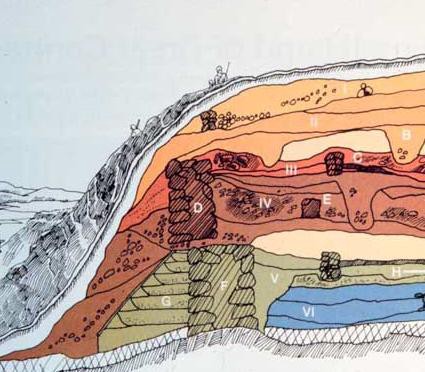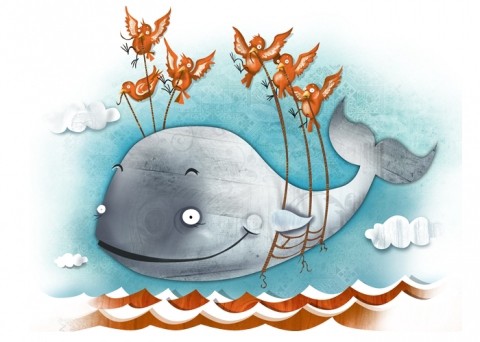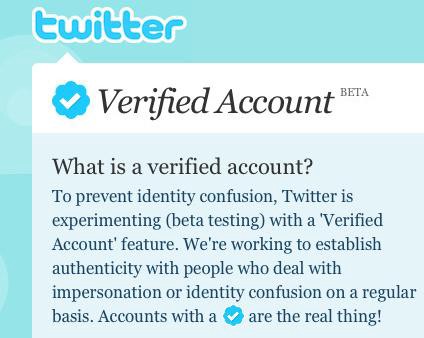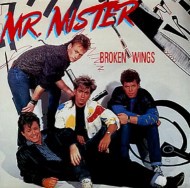21 Best Albums of 2010 -- With No Kanye On It
Wouldn’t you find it refreshing to read a list of the 21 Best Albums of 2010 that does not at all include Kanye West? I know I certainly did!
Our Brief Fossil Record
by Hillary Frey

I was supposed to be a geologist. It’s true: I know a lot more about dips and strikes, mass extinctions, the relative time scale (which I can recite thanks to the mnemonic “Please come over some day, maybe play poker, three jacks cover two queens” — look it up), dissolved oxygen, schist, gneiss, basalt pillow formations and various dramatic fault lines than I do about the current New York Times bestsellers list, or what’s trending on Twitter. I’m an editor, but I still spend a lot of time thinking about rocks. And water. Actually, saying I was supposed to be a geologist isn’t quite right: I was supposed to be a limnologist, an expert in fresh water.
This was thanks to a required science course in college, which sent me my first day of freshman year to Physical Geology and Dr. John Thomas, a tiny bald man with bad teeth who, for some reason, encouraged me to consider geology as a major. I had no better idea, and so signed up for the next class: Historical geology (i.e., fossils). Then: Mineralogy, Crystallography and Stratigraphy. I got a part time job using a bandsaw to cut rocks into pieces, and received a grant to do a study of the kidney-shaped Lake Lonely, upstate, during my sophomore summer. I spent a semester away from school not screwing my way across Europe, but sailing a two-masted schooner so far from land that stars actually looked like stars and the weather was so treacherous that I once had to be chained to a mast so as not to go overboard.
None of this means I learned survival skills; I wasn’t a geologist/hippie hybrid with a desire to live off the land, but a misfit who felt more comfortable floating in a fishing boat with her awkward middle-aged professor (not Dr. T, but another one), searching for life in a tiny, lonely lake than hanging out at the Icehouse, an awful bar in Saratoga Springs. I didn’t “collect” the high peaks of the Adirondacks; I didn’t dream of following Darwin’s footsteps in Patagonia. I certainly never camped. But I did learn how to imagine what the earth looked like without people: so much water and bizarre looking creatures with harsh, un-pet-like names. And, from sailing, and sitting up in the middle of the night on watch searching for pirate ships that would never materialize, I learned what it would feel like to be forgotten.
Weirdly, neither of those things — a world without people, or being forgotten — scare me too much; I don’t much like aging, but I don’t carry around much angst about death. The end of the world, as it exists in pop culture, is a science experiment instead of a horror show. I think I feel this way because when you study geology you accept that we humans are just another bunch of trilobites, inevitably if slowly headed for a mass extinction, and that the earth is more powerful than Fox News or any other monster we can create. We may ruin the atmosphere, but people still can’t make weather.
Hillary Frey is on slow-time.
Everything You Were Too Lazy to See in 2010
Holy moses, here is an amazingly comprehensive list of, pretty much, all the moving-image culture you missed in 2010 and shouldn’t have, according to many people! Still, the one cultural event we can agree upon with Josh Siegel, associate film curator at MoMA? Sky Mall Kitties! Miss you, Sky Mall Kitties.
Social Networking Alternatives For After the Apocalypse
by Alex Blagg

When the world finally ends, the odds are long on The Horrific Event taking every single living soul on Earth with it. And if there are at least two of us left, our need to inauthentically connect with each other via technology will remain, and we’ll be forced to devise new and unconventional ways to facilitate the comforting feeling of social networking even after The Whole Internet has finally, mercifully, been burned to the ground.
What follows are my ideas for creating “In Real Life” facsimiles of the social behaviors we’ve become accustomed to online. I think they could come in quite handy in the event of Apocalypse (and/or Robot Revolution and Subsequent Human Oppression).
• Facebook: Try keeping a mental inventory of the other survivors with whom you are acquainted, and occasionally “engage” them in friendly behaviors such as verbally giving each other feedback on the miserable state of your respective lives, providing symbols of positive encouragement for achievements and triumphs (such as a successful mutated-varmint-hunt), and offering words or gestures of support during the harder times (like when other individuals with whom they are acquainted are ravaged by the Post-Apocalyptic Throat-Pus Sickness).
• Twitter: As our entire media industrial complex will likely (and rightly) be reduced to a smoldering pile of stupidity-rubble, the proliferation of human ideas after The Sky’s Great Fire Dance is going to be crucial to our continued survival. And in the absence of Twitter’s satisfying system of communicative convenience and economy, I believe we would be wise to attempt capturing the thoughts, observations and passing fancies that run through our minds in words that are spoken out loud. Whether we share them with a group of “followers” looking to us for signals as to what we should do now that all hope has been destroyed, or a scattered group of fellow survivors who just happen to be congregating and crying nearby, or to no one at all, the important thing is our every waking thought continue to be expressed somewhere, somehow.
• Foursquare: Following the Time of Infinite Darkness, most acknowledged land boundaries, borders and property claims will likely be forgotten. This is a great opportunity to explore the scorched wastelands, then loudly announce to other survivors your arrival at these locations, shout about how cool their atmospheres of bone and spilled blood seem to the eye, and declare your new rightful position of feudal leadership over them.
• Tumblr: Try entertaining your fellow survivors with stories of what you dreamed about during the previous night of frozen nuclear winter. And the people with the most interesting/least insufferably boring dreams get their dreams repeated a whole bunch of times.
• Flickr: Try making crude cave paintings of the rotting garbage you foraged so you can show the rest of your fellow survivors how well you’re eating, even during the epoch of endless melancholy.
• Instagram: Same thing as the Flickr substitute, except rub a little Apocalypse ash all over your cave paintings so they look even more distressed.
• YouTube: Hmm, I dunno about this one. Play charades… to the death?
• Yelp!: Tell your tribe’s feedspeople, to their faces, that their post-apocalyptic gruel tastes like cans of old sardines and random garbage (and allow them the fair chance to respond by letting you know that the post-apocalyptic gruel is, in fact, made from cans of old sardines and random garbage).
• MySpace: Try playing Hide and Seek in an abandoned burned-out shopping mall.
Alex Blagg is the Internet’s leading social media guru.
Image by Dave Mott, from Flickr.
Suicidal Man Brings Out The Best In Everyone

A 26-year-old man, recently released from psychiatric treatment at Bellevue after a nervous breakdown brought on in part by the fear that he would be evicted from his rent-controlled apartment, tried to hang himself and then slashed his throat before jumping out of his window and falling nine stories, only to land on a pile of the garbage the city has been unable to pick up because of the snow. Vangelis (Angelo) Kapatos survived, and is in critical condition. (The News has a heartbreaking picture of Kapatos as a baby-faced high school grad.) Naturally, readers are nothing but sympathetic.
People Most Likely to Die in 2011, According to a Death Pool
People Most Likely to Die in 2011, According to a Death Pool

N.B. For this particular annual death pool, points are awarded for each “correctly” chosen person at a rate of 100 minus age at death. This may account for some youngward skew. 51 total entries were received.
Randy Quaid: 4 lists
Stephen Hawking: 4 lists
Larry King: 4 lists
Mel Gibson: 4 lists
Jimmy Carter: 4 lists
Gerry Rafferty: 4 lists
Peter Tork: 4 lists
Keith Richards: 4 lists
Ronnie Biggs: 4 lists
George H. W. Bush: 4 lists
Ariel Sharon: 4 lists
Margaret Thatcher: 4 lists
Ruth Bader Ginsburg: 4 lists
Roger Ebert: 5 lists
Nancy Reagan: 5 lists
Courtney Love: 5 lists
Christopher Hitchens: 5 lists
Steve Jobs: 6 lists
Bob Barker: 6 lists
Kirk Douglas: 6 lists
Dick Clark: 7 lists
Betty White: 7 lists
Michael J. Fox: 7 lists
Muhammad Ali: 8 lists
Penny Marshall: 8 lists
Fidel Castro: 8 lists
Charlie Sheen: 9 lists
Abdelbaset Mohmed Ali al-Megrahi: 9 lists
Dick Cheney: 10 lists
Amy Winehouse: 10 lists
Zsa Zsa Gabor: 12 lists
Elizabeth Taylor: 13 lists
Kim Jong-il: 13 lists
Lindsay Lohan: 17 lists
Aretha Franklin: 32 lists
Michael Douglas: 37 lists
Rick Paulas is done trying to defend the reasons why gets his friends and family to wager on which celebrities will die the following year.
Arkansas Even More Hellish Than Usual
First it was the birds, and then… “Officials are investigating what may have killed some 100,000 fish in the Arkansas River in the northwestern section of the state, authorities said on Sunday.” If you’re in Arkansas right now you might want to consider getting the hell out. I think next up is frogs.
All Your Accounts Will Be Verified

How can the future have a government-regulated reputation market if you can’t express copyright in your online persona(e)? California leads the way starting this brave new year, in which all your accounts are verified: it’s now illegal to impersonate people online for nefarious purposes. Specifically: one is a criminal if one “knowingly and without consent credibly impersonates another actual person through or on an Internet Web site or by other electronic means for purposes of harming, intimidating, threatening, or defrauding another person.” I think the trick will be in the issue of “harm”? And possibly “defraud”? I mean the good news is that bad things will have a legal foothold: most online impersonation and harassment seems to be part of larger campaign of harassing and/or attacking women. So for purposes of like, harm as in stalking? Good! But harm as in “brand dilution” — that is what will be prosecuted. Of course there is no carve-out for playful, political or non-murderous uses of online impersonation, and so, before this winds up in courts for refinement, it certainly seems like a stepping stone to our future regulated online identities. Just go ahead and trademark yourself now and get it over with — that way you don’t have to wait for the law to catch up to your personal brand online.
A New Nursery Rhyme About Blackbirds

Sing a song of sixpence
A pocketful of rye
Four or five thousand blackbirds
falling from the sky
The town of Beebe was startled
no one could believe
Such Hitchcockian event
On cheery New Year’s Eve
Some called it an omen
A sign of things to come
And wondered all what else
Will fall in year two oh one one
’Twas probably the weather
The scientists assured
Lightning over Arkansas
Or hail struck down the birds
But specimens of sixty-five
They’ll test for toxic fumes
(While X-Files fans put out the word:
A manmade sonic boom)
The rest could fill 200 pies
Once you remove the talons
That would make a dainty dish
For M. Night Shyamalan
To the Class of 2011
by Mike Barthel

TO THE CLASS OF 2011: a hearty hail and hello to you and to those others from the town and from your families who have been able to make it here today. I greet you and I thank you for inviting me to this ceremony. It is a date which must have seemed so significant when you began the academic year nine months ago, but which could easily have been overshadowed by the current crisis. After all, faced with what we are facing, why should this day be different from any other day? What meaning could it possibly hold placed against the grim import of that ultimate hour, rushing even now out of the future and toward the present? Nothing will change after today, certainly. Why should you pause in your great work? Why should you put off, even for a moment, your search for a solution, for a way to elude the grip of this final moment? Why should you stop and listen to me?
Allow me to put it to you this way: you should stop and attend to our purpose here because such seemingly meaningless rituals can hold great good in times such as these, times when solitary work is as good as no work at all. Those of my generation, decades beyond our own instances of this ceremony, have only slowly come to appreciate rituals. I know some who skipped this event entirely, feeling it meaningless given that we had already completed our requirements for a diploma. And this pattern continued after we left the academy for our futures in the world beyond. We mumbled and slouched our way through life, skirting markers of adulthood because they seemed inauthentic, or because we would have been overly self-conscious participants. We were rich in time and poor in experience, and slowly, we learned. But we no longer have that luxury. Our accounts are now all depleted, and we cannot make time for mistakes.
Rituals regulate our long-term circadian rhythms in the same way the rising and setting of the sun or the change in seasons does; they make us feel like progress is being made, like we are working toward something, not merely sustaining ourselves. In our tragically extraordinary year, then, this ceremony is more vital than ever. You all need that moment of affirming your group identity with the people you have gone through this experience with, even though it is a different experience than you came in expecting. We’re up against a hard-and-fast deadline, and deadlines, as all college students know, have a way of focusing your priorities. Now is when we find out what is really important to us, and this ceremony, here today, is less about the conferring of certain honors than it is a public demonstration of your commitment to this path.
I have great respect for what you’ve done here. Rather than ignoring this looming deadline, as many have throughout the world, you have embraced it, posted clocks everywhere counting down to the point of party over. And it let you think ahead. You saw the path the crisis would take and planned accordingly, erecting barriers around your valley just past the ag school, stocking up on solar generators, and spending a snowy and dark January making yourselves self-sustaining. A lot of people left, to be sure. You cannot blame them. Why would you stay here for the last year of your life? What point is a degree compared to your loved ones? I have never agreed with those who dismissed college as pointless, but in 2011, it is hard to argue otherwise.
Today, then, I am speaking solely to those who stayed. What many of us on the other side of the barrier have wondered is this: why? After talking with some of you these past few days, I think I may understand a bit better. Some of you stayed because your friends are all here, your families having stopped their clocks or beyond reach or having joined you; all that you had to live for was on campus and in town. Others maybe could only deal with the looming deadline by working up until the last minute, by pouring everything they had into some solution, some fix to a problem we don’t even really understand yet.
What all of you have in common is that you believe in collective work. You know that deadlines are artificial but necessary, meaningless but vital, and that what coalesces at the final moment isn’t final but simply complete insofar as it ever will be. What matters is not the product but the progress; we need not believe that perfect knowledge is ever possible to pursue its accumulation. You believe in doing all we can do in the time we have. And if that time turns out to be less than what we thought, that ultimately will not deter you in your task.
I envy you this. I lack this relentless drive to preserve the future. My invitation today was extended on behalf of my work with the Abort-Retry-Continue Project, and so I suppose I should talk about ARC a bit. Unlike you, we are not working to put off the deadline, but have accepted it, and are hoping only to extend our reach beyond its borders, to touch in some way whatever might lie on the other side. We are trying to figure out some way to present the major creative works of our civilization so that they might be available to and understandable by whatever sentient beings might happen to come across them. ARC is a tribute to the world that is soon not to exist and the inexhaustible self-regard of the dominant species that has seized the reins during its final moments.
This, as you might imagine, is not easy. We don’t know how the recipients of such a transmission might communicate, to say nothing of what technology they would or wouldn’t possess, and so we are having to produce each work in multiple ways: as visuals, as sounds, and as experiences. Even this presents problems. After all, the material referents for the sounds and pictures we most commonly use are going to be destroyed along with us, to say nothing of the cultural and historical context. We have had to rely on ideas about what experiences or objects are universal and how perception might work in other modes or even other dimensions, and while some things have been relatively easy — reproductions of visual art or music are what they are, as long as we can figure out a way to preserve and power them — try translating Hamlet or the Bhagavad-Gita into pictures that a creature in the fourth dimension would understand and you will see the issues we’ve run up against.
The most successful way we’ve come up with for preserving stories has been through the technique I referred to earlier: this idea of “experiences.” Physical objects that have been found outside of Earth are as close as we can get to a universally translatable medium — they may mean something different to others, but they at least have the same material reality. We’re trying to find chemical and biological analogues for the stories that seem to have found resonance with us. What combination of elements could stand in for the Aeneid? What chemical reaction would convey the same sense as the Songlines?
In the face of such an existential crisis, maybe this task seems frivolous. I get that. But let me explain why I think it is ultimately just as necessary as what you are doing here.
My father — a professor of literature and writing — retired at the end of last year. He put it off for as long as he could, but eventually, the time came. On his final day of work in mid-December, he called me from the snowy back road he used to drive home. He talked about all the forms he had to fill out, and turning in his parking pass and ID card, which he said reminded him of surrendering his weapon upon leaving the Army. He just barely made it out of that experience, having managed to serve out his time in Kansas, having avoided getting shipped overseas, having reached beyond his own deadline. The last day was anticlimactic, he said, given that he had been preparing for it since Thanksgiving, packing up his office and finding old pictures and saying his goodbyes.
I knew what he meant. You all are more aware of this than anyone, but theories about the particular form the end will take have promulgated beyond scientific reason or rhyme. Some think it will come through holocaust or disaster, something fiery and dramatic. Not to get too Eliot on you, but my understanding of the rupture is such that things will just suddenly stop, with no preamble or process to mark the occasion. When the accumulated time grows too great for the universe to support our continued existence, we will blink out in a millisecond.
That means the end itself will be highly anticlimactic. Any last-minute reconciliations or deathbed conversions will have to happen ahead of time. You could even miss it, if you aren’t watching a clock, and there will be no opportunity to reflect afterward, no conclusions to draw in the conflagration’s midst. All we will leave behind are the whispers of what we’ve been able to accomplish together, the traces we were able to inscribe through collective effort into physical reality.
If such a point does not come to pass, I think we — or, rather, you, all of you — will have done something unprecedented. But if we do lose the fight and flicker out, I hope the thoughts of those who come after will not be like Keats’ of Ozymandias, trembling at our majestic residue surrounded by the always-victorious incursions of nature. Rather, I hope they will see we were content with what we have, that we realized any time we might be given was more than we deserved, and that we did the most we could with the opportunities presented. I hope that they sense we were conscious of the past that preceded our existence and of the future yet to come, that we understood this awful deadline not as an absolute end but simply a border between one thing and another. Maybe one side is louder, but quiet has its own purposes.
My message today, and my request to all of you, is that you not forget this: all we do, even if this event comes not to pass, must finally be launched into silence like a forbidden child down the Nile, and we do not know who will one day catch it. We all must labor first and foremost against the deadline of sundown. But be mindful of how we might pass on what we have found. To us, the story we tell about ourselves seems like the most important thing in the world. But our memory will only survive if we can contribute to the story that continues after we are gone. I came here today certain that those of you here, in this makeshift citadel, can contribute more than most. As much as I fervently hope for your success, I hope too for your guidance in my own project. If you cannot succeed in making this ending simply one more border, I hope you might aid my attempt to write an epilogue of which we can be proud.
Mike Barthel may spend the end Tumbling.
